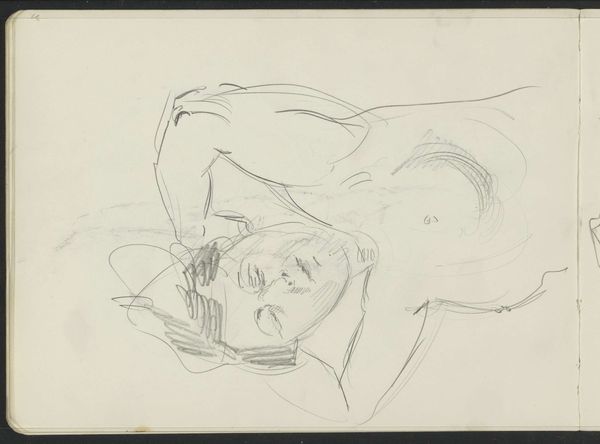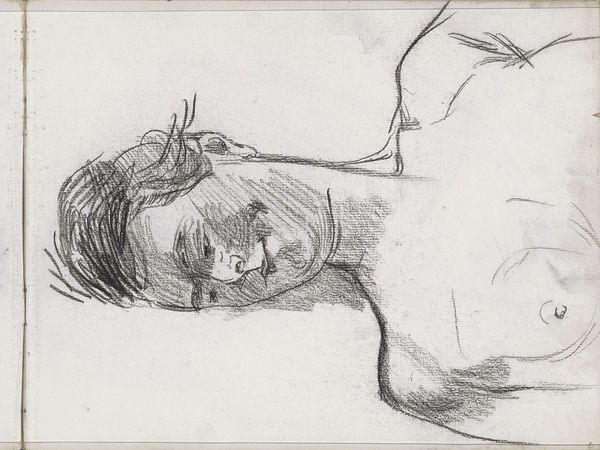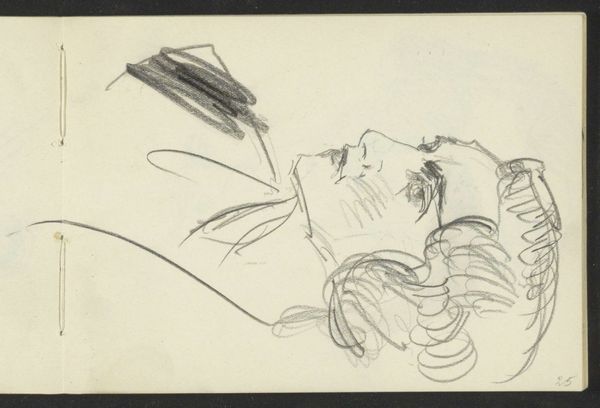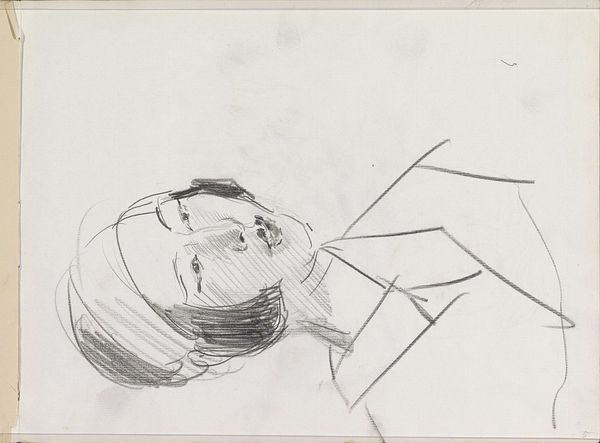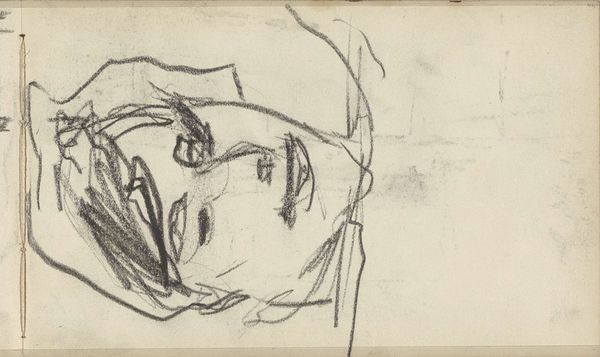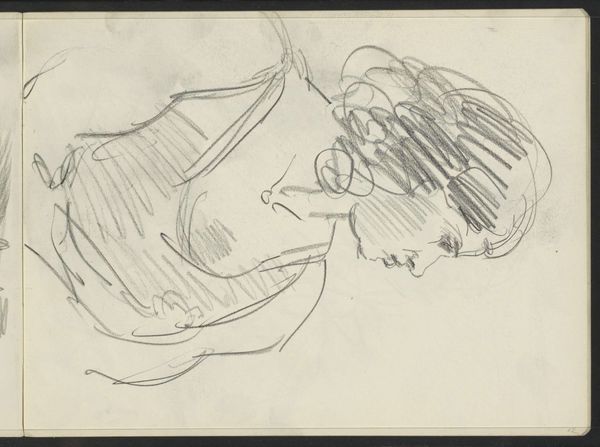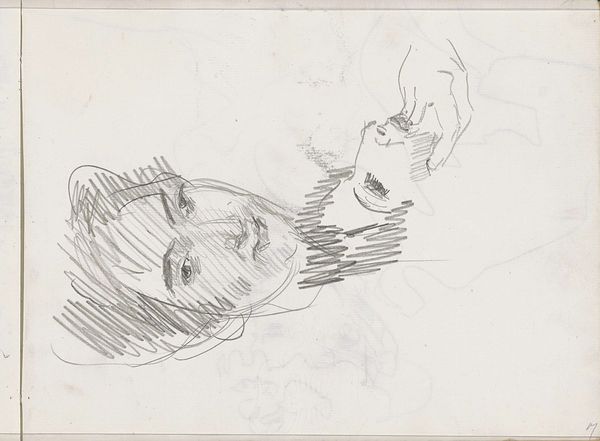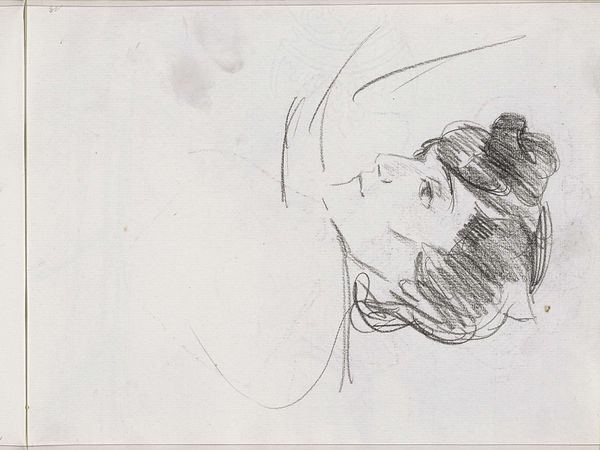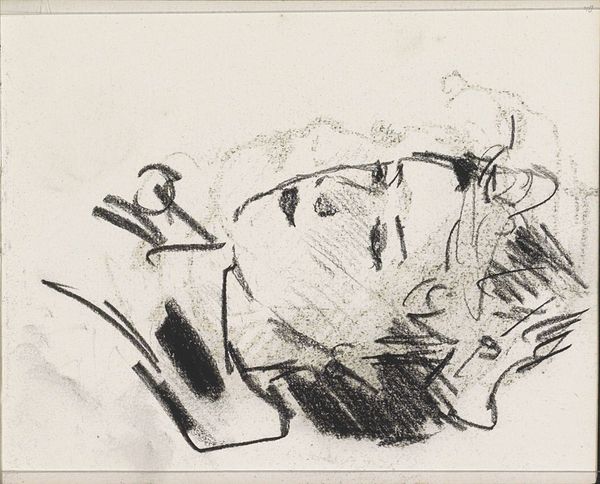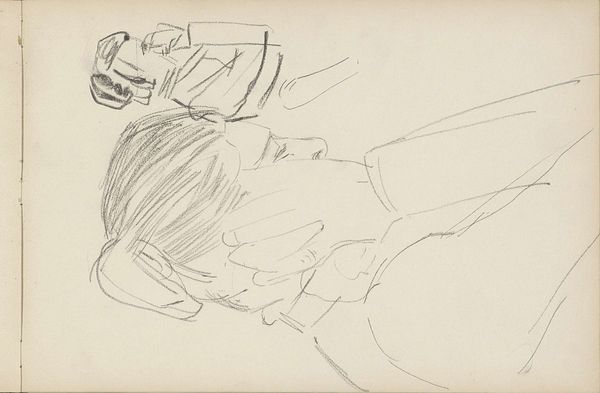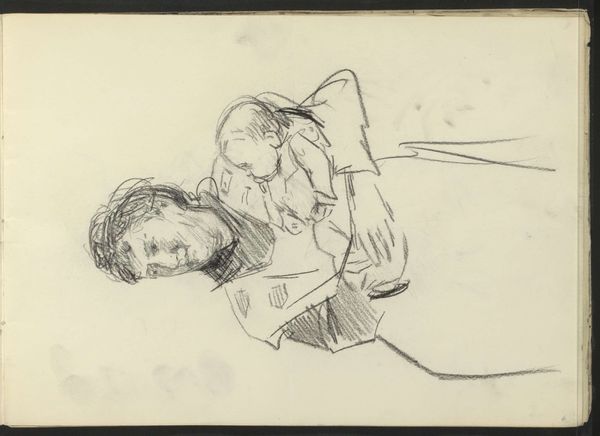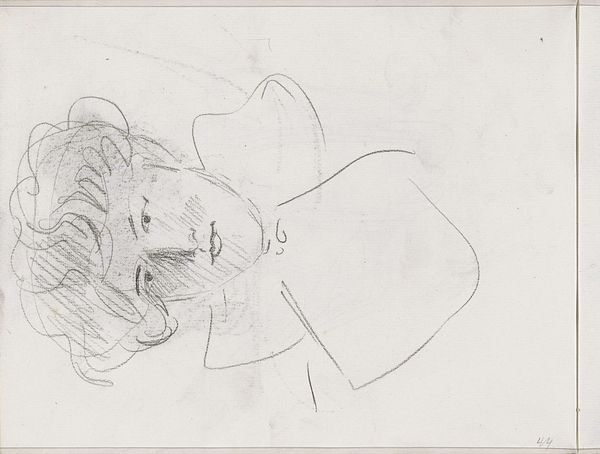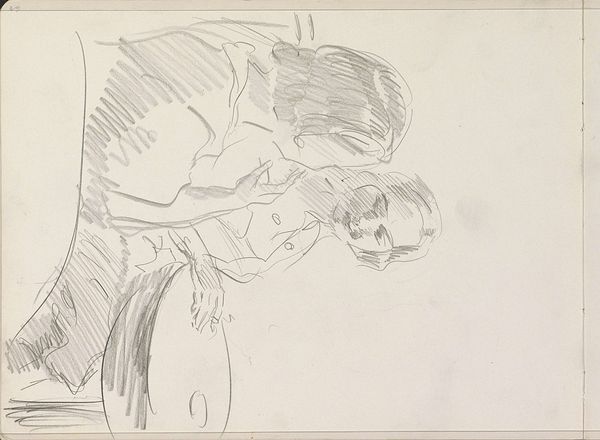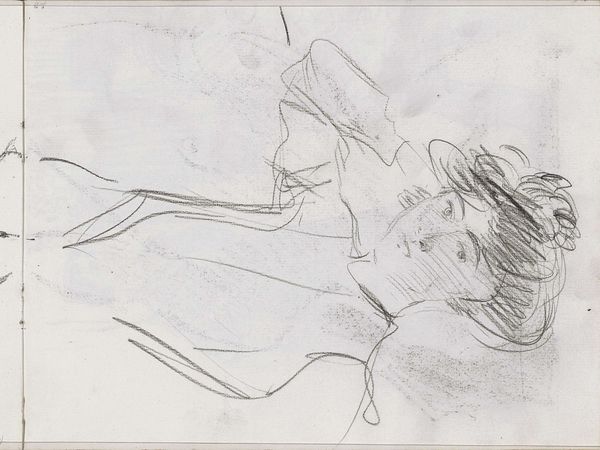
drawing, pencil
#
drawing
#
ink drawing
#
figuration
#
pencil
#
line
#
sketchbook drawing
#
realism
Copyright: Rijks Museum: Open Domain
Editor: Here we have "Portret van een onbekende vrouw, in profiel" by Isaac Israels, probably from somewhere between 1915 and 1925. It's a pencil drawing and the first thing that strikes me is its intimacy, like we’re glimpsing a very private moment. What can you tell us about the context of this drawing? Curator: Well, let's think about what was happening then. The 1910s and 20s were a time of huge social upheaval, especially after the First World War. Looking at the Rijksmuseum's records we can see Israels had spent the war years in London, only returning to The Hague after the war in 1917. How do you think this turbulent historical moment could be linked to what we see in this seemingly intimate image? Editor: Hmm, maybe there is more tension here than I initially realized. I had presumed calm but you're right, the end of the war, women's suffrage... what does this artwork communicate in this larger social and political framework? Curator: It's interesting how the “unknown woman" is presented. Typically, in older formal portraiture, subjects project status, often reflecting powerful institutions or patronage. But this sketch, almost casual, almost certainly not commissioned, emphasizes interiority, reflection, and personal life. Editor: So, the lack of idealization might be the point? Perhaps it’s reflecting a move away from rigid societal expectations? Curator: Precisely! Art increasingly focused on individual experience. And Israels, with his quick sketches, captured moments in the flux of daily life. We could think of this drawing as mirroring shifting values, putting individual, modern lives in the center. A small thing maybe but also… rather powerful. Editor: I see it now. The informality becomes a statement about valuing the everyday and the individual. Thanks. That makes it all much more profound. Curator: Indeed. It highlights the ever present conversation between an artist, subject, and changing times, always ripe for re-evaluation.
Comments
No comments
Be the first to comment and join the conversation on the ultimate creative platform.
